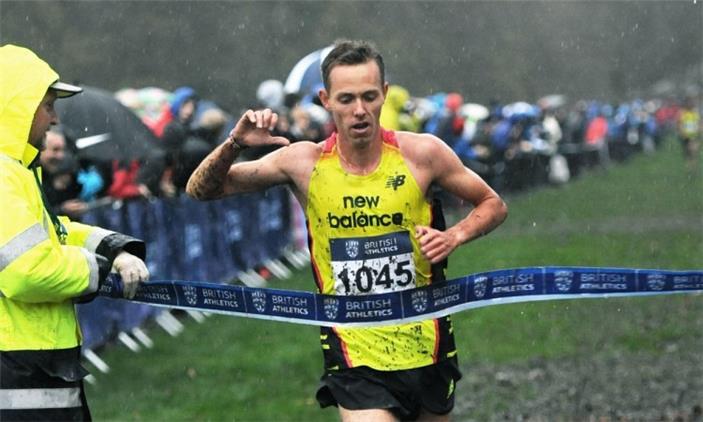How tough was the 2018 London Marathon?

Those who ran the London Marathon this year will acknowledge it was a little tougher than usual, but just how tough was it? London 2018 and the Liverpool cross country 2015 have something in common… they both have an SSS score of 3.1!
If you have run a muddy cross country course, as shown here when Ross Millington (handicap -3.1 ) from Team New Balance Manchester was the winner, you'll have a good comparison of how tough the conditions were last weekend. Our top finisher Sir Mo Farah (handicap -7.3) in a British record of 2:06:21, was grounded with fatigue at the end of his exhausting effort and clearly feeling the effects.
How is the SSS worked out?
The SSS is based on how easy or difficult it was to run a quick time in a given race. The harder it was to run a quick time, the higher the SSS score. The way it is worked out is by looking at people's times in a particular race and comparing it against their previous performances. As a simplified example, if 100 people run in race A one weekend, and the same 100 run in race B over the same distance the next weekend and, on average, the field is 60 seconds slower in race B than race A, there was clearly some factor (be it weather conditions, accuracy of course measurement, type of terrain, competitiveness of the field, how hilly the course was etc.) which caused times to be slower. Therefore, the SSS for race B will be higher than the SSS for race A.
Sometimes the system doesn’t have enough data to run the calculations properly – for example, if there were only a small number taking part and only a few have profiles we will have limited access to previous performance data. In this situation the system gives a notional value of 1.0.
That is the theory underpinning the runbritain algorithm and it gives an interesting comparison between these two events. It was great to see several of our top finishes also tracking their handicap and seeing improvements.
Good Luck with you next event - we wish you a low sss and handicap score!

Photo credit - Mark Shearman
